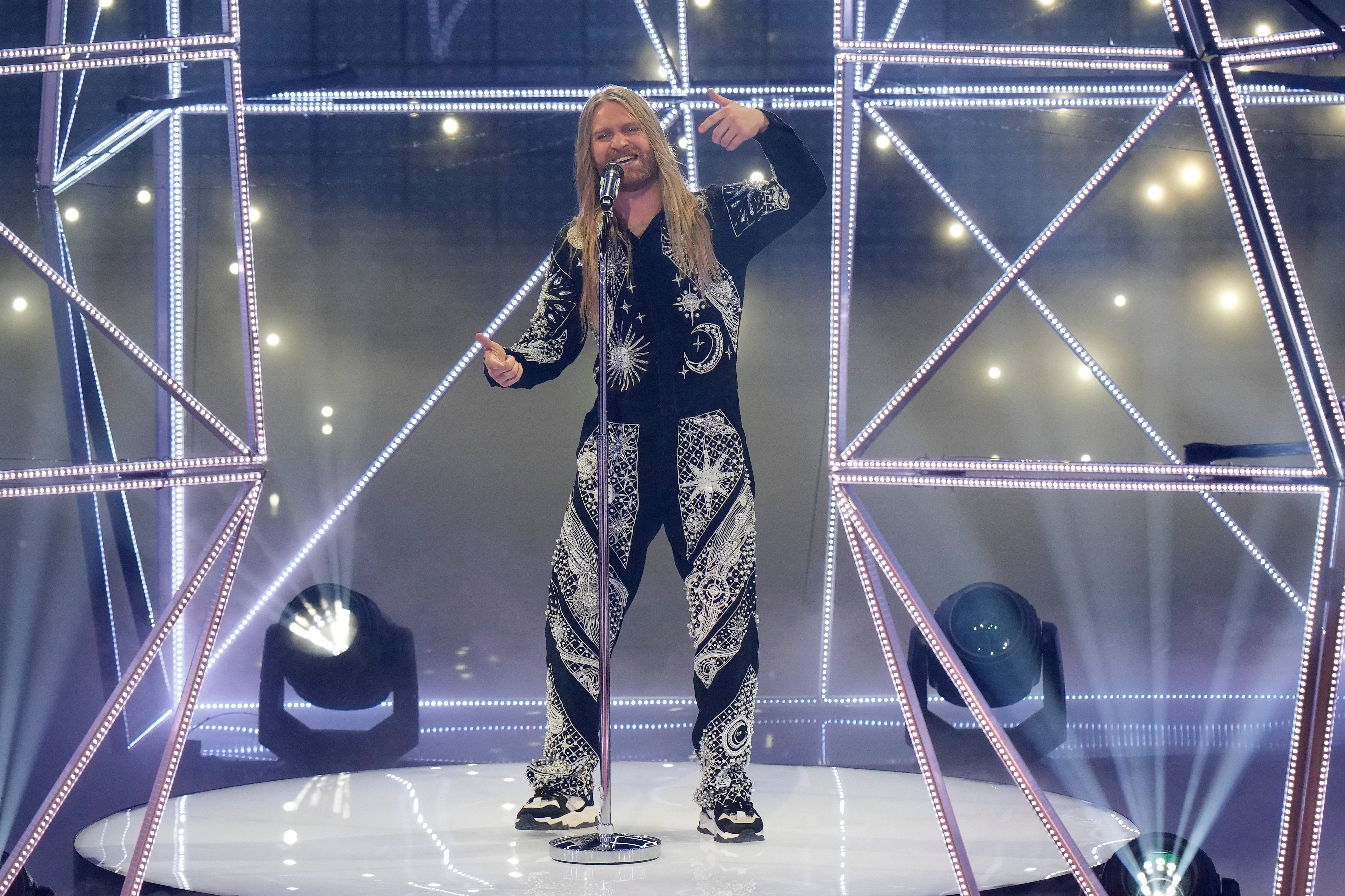Eurovision 2023: UK to host next year on behalf of Ukraine
As this year’s champion, Ukraine will automatically qualify for the Grand Final in 2023
Your support helps us to tell the story
From reproductive rights to climate change to Big Tech, The Independent is on the ground when the story is developing. Whether it's investigating the financials of Elon Musk's pro-Trump PAC or producing our latest documentary, 'The A Word', which shines a light on the American women fighting for reproductive rights, we know how important it is to parse out the facts from the messaging.
At such a critical moment in US history, we need reporters on the ground. Your donation allows us to keep sending journalists to speak to both sides of the story.
The Independent is trusted by Americans across the entire political spectrum. And unlike many other quality news outlets, we choose not to lock Americans out of our reporting and analysis with paywalls. We believe quality journalism should be available to everyone, paid for by those who can afford it.
Your support makes all the difference.The UK will host next year’s Eurovision Song Contest on behalf of Ukraine, it has been announced.
The European Broadcasting Union (EBU) and the BBC confirmed the news on Monday.
Last month, it was announced that “discussions” were being held between the EBU and the BBC over whether the UK would host the televised event given that Ukraine is not able to do so due to Russia’s ongoing invasion of the country.
As a result of those discussions, the BBC has been confirmed as host broadcaster for the 67th Eurovision Song Contest next year, with the contest to take place in a yet-to-be-decided UK city.
Martin Österdahl, the Eurovision executive supervisor, said in a statement: “We’re exceptionally grateful that the BBC has accepted to stage the Eurovision Song Contest in the UK in 2023.
“The BBC has taken on hosting duties for other winning countries on four previous occasions. Continuing in this tradition of solidarity, we know that next year’s Contest will showcase the creativity and skill of one of Europe’s most experienced public broadcasters whilst ensuring this year’s winners, Ukraine, are celebrated and represented throughout the event.”
It was also revealed that the Ukrainian public broadcaster UA: PBC will work together with the BBC to develop Ukrainian elements of the show.
A logo reflecting the “unique circumstances” of next year’s event will also be unveiled at a later date.

In a statement given to The Independent, Oleh Psiuk – the frontman of Ukraine’s winning band Kalush Orchestra – said: “Of course, we are very sad that the Eurovision Song Contest will not be held in Ukraine next year. But we are grateful to the UK for their solidarity and for agreeing to hold the event in support of our country.
“We hope Eurovision 2023 will have a Ukrainian flavour and celebrate our beautiful, unique culture. We, in turn, will make all efforts to help Ukraine win next year as well, so that Eurovision 2024 can take place in a peaceful country.”
In one of the most competitive Eurovisions in recent memory, Ukraine won the contest in May after receiving overwhelming support in the public vote. The UK’s entry, Sam Ryder, came in second place.
Enjoy unlimited access to 100 million ad-free songs and podcasts with Amazon Music
Sign up now for a 4 month free trial (3 months for non-Prime members)
Enjoy unlimited access to 100 million ad-free songs and podcasts with Amazon Music
Sign up now for a 4 month free trial (3 months for non-Prime members)
Shortly after the televised victory, Ukrainian president Volodymyr Zelensky said in a Facebook post: “Our courage impresses the world, our music conquers Europe! Next year Ukraine will host Eurovision! For the third time in its history. And I believe – not for the last time.”
Since then, however, Eurovision’s governing board, the Reference Group, concluded that “given the current circumstances, the security and operational guarantees required for a broadcaster to host, organise and produce the Eurovision Song Contest under the ESC Rules cannot be fulfilled”.

As the winning country in 2022, Ukraine will automatically qualify for the grand final, alongside the “Big Five”, which comprises the UK, France, Germany, Italy, and Spain.
The UK has won the contest five times, and has hosted Eurovision a record number of eight times, having stepped in on multiple occasions when the winning countries were unable to fulfil their hosting duties.
This occurred in 1960 on behalf of the Netherlands, on behalf of France in 1963, on behalf of Monaco in 1972, and on behalf of Luxembourg in 1974.
The country last hosted the contest in 1998 in Birmingham following the victory of Katrina and the Waves with their song “Love Shine a Light” in 1997.
The UK fared well at this year’s Eurovision, with Sam Ryder placing second overall. Read The Independent’s interview with Ryder here. The Essex-born musician performed his song “Space Man” at the finals in Turin, Italy – this year’s host country, following the victory of Italian rock band Måneskin in 2021’s competition.
Prior to his selection as this year’s hopeful, the 32-year-old made a name for himself on TikTok through a mix of his covers of major hits and original music.
Eurovision 2023 will take place in May, with exact dates yet to be announced.

Join our commenting forum
Join thought-provoking conversations, follow other Independent readers and see their replies
Comments